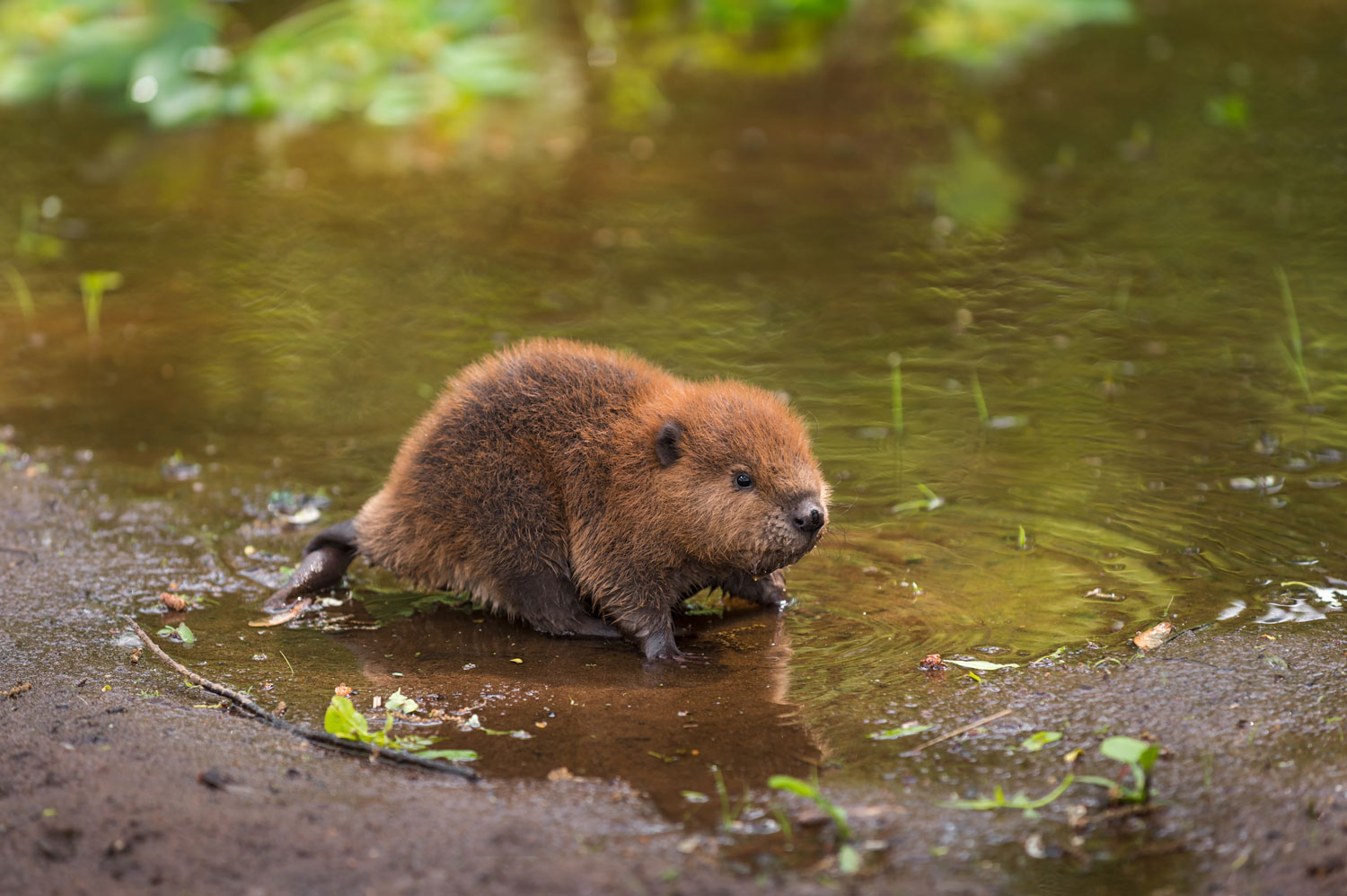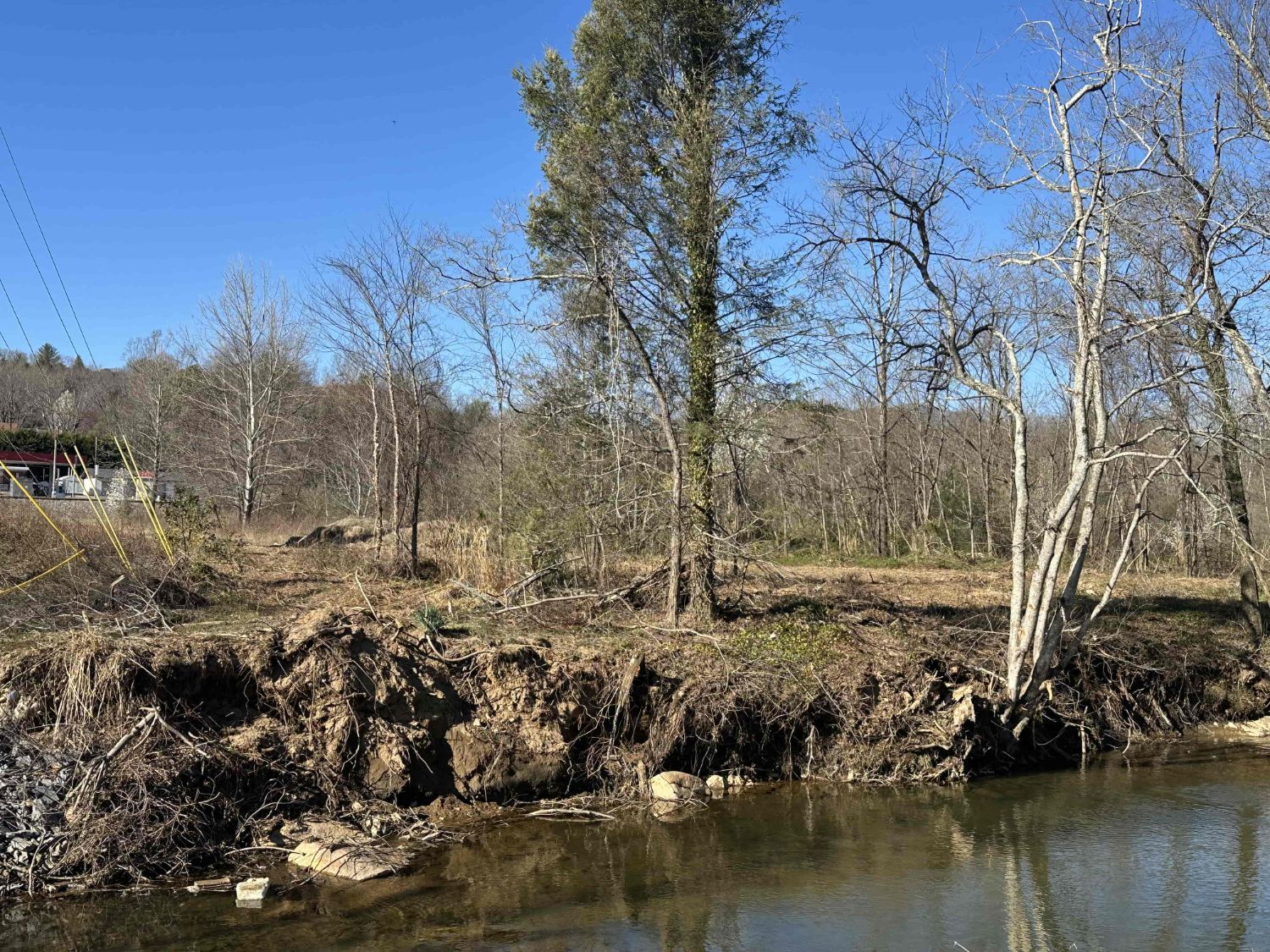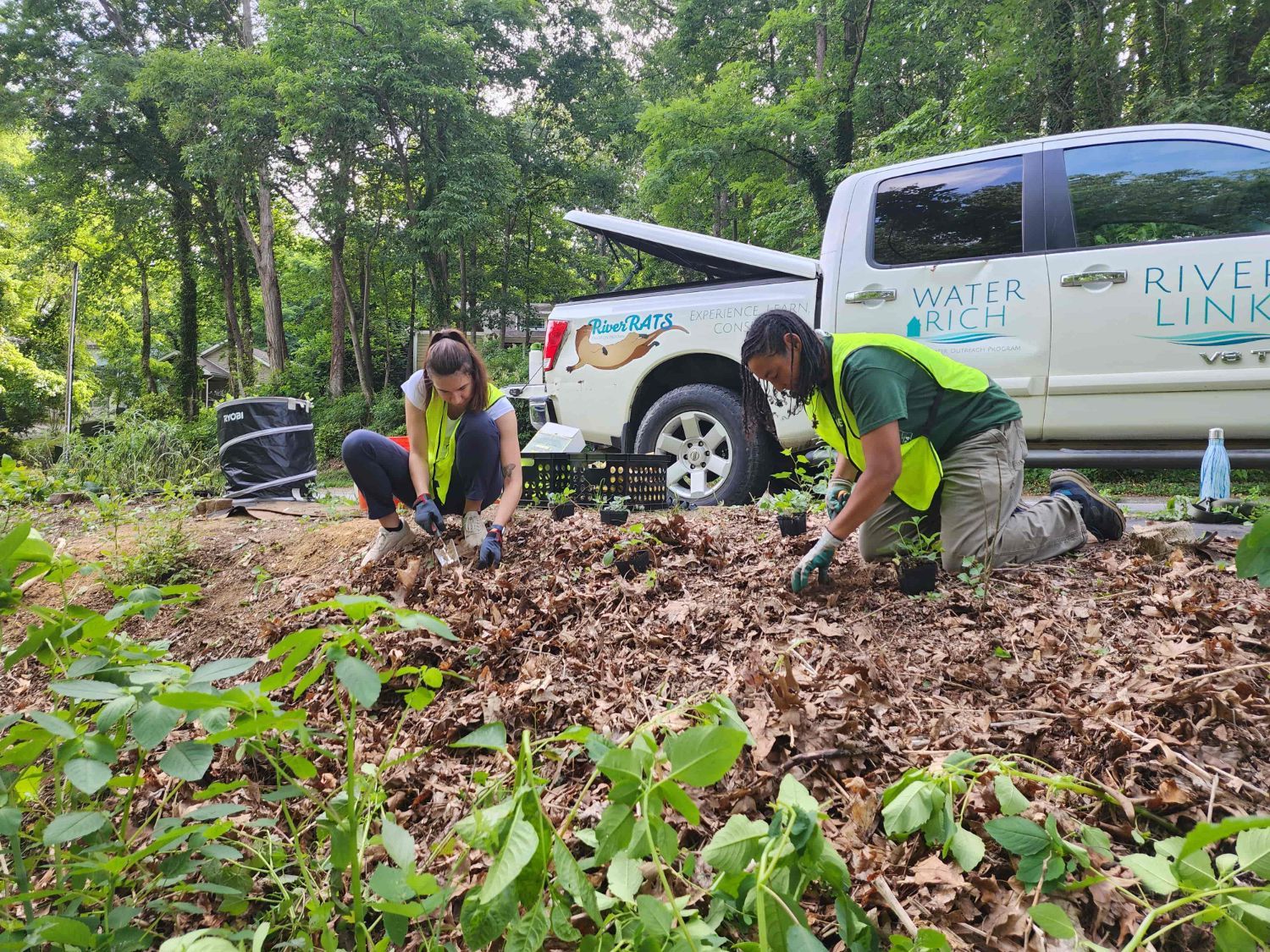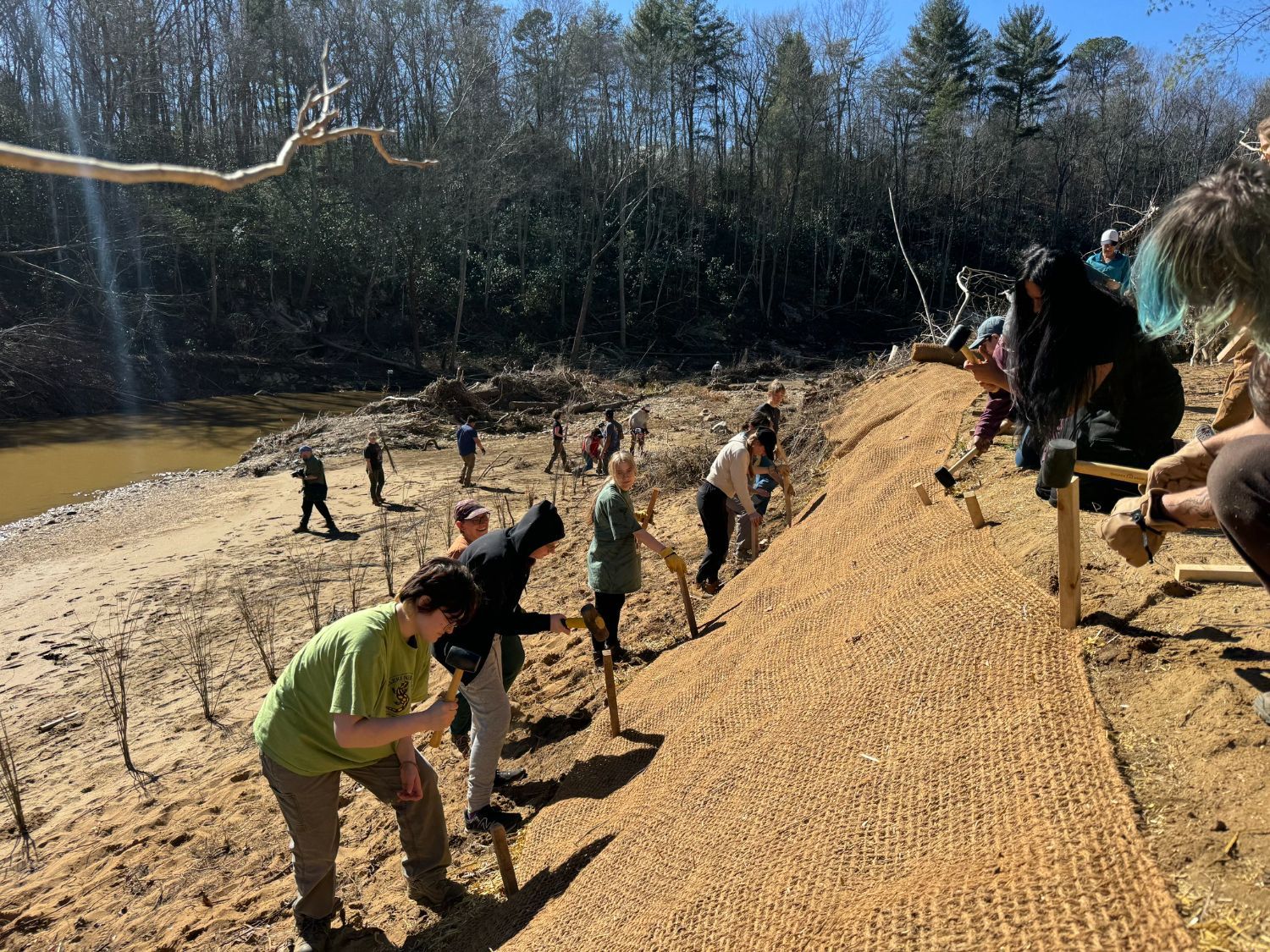|  |  |  | Beavers | Beacons of Hope Hurricane Helene hit our community hard. As we’ve come to understand why this storm was so devastating, we encounter a tangled web of challenges: climate change, decades of stream alterations, steep terrain, and structures built within the shifting flood zone. Many of us have worked to help clean up neighborhoods and places we love, but the sheer scale of the rubble can leave us disheartened, as if our efforts are far too small to meet the vast need. Yet hope emerges in some surprising places. As our team rested on the eroded banks of the French Broad River one recent morning, a buck-toothed, thick-furred, leathery-tailed creature was seen emerging from the debris—giving us renewed hope for a resilient community. Let us explain. Beavers are probably second only to humans in their ability to shape the environment, earning them the informal title of "ecosystem engineers." Over 7.5 million years of evolution and through a major glaciation, North American beavers (Castor canadensis) mastered digging, foraging, and dam-building to create safe harbors for themselves and their young. Click through to learn how these behaviors not only improve habitats for beavers but also create ecosystems that other species—including humans—depend on. |
| | |
|
|
|
|  |  | Restoration Planning for the Swannanoa River The Swannanoa community is one of the most heavily flood-damaged areas in Buncombe County due to the size of its watershed and the steep slopes in its upper reaches, leading to extreme water volume and velocity at the height of Helene’s flooding. Since there is no incorporated municipality at the heart of this impact, the community has come together with strength, commitment and innovation to find its path forward to recovery. RiverLink is honored to be part of this collaborative effort. With support from The Community Foundation of WNC and Anchor QEA, RiverLink and Wildlands Engineering have teamed up to evaluate damaged streambanks along 6.6 miles of the middle Swannanoa River using remote sensing and field work. Survey data will be compiled in a digital mapping tool that enables us to prioritize damaged stream locations for future restoration activities that respond to the needs at each site. This work will identify opportunities for streambank repair, enhancement of natural flood benches, replanting of woody vegetation, and restoration of healthy riparian zones. Armed with this crucial assessment, we will partner with the Swannanoa Grassroots Alliance and others to seek grant funding and implement the restoration projects identified through this project over the coming years. This project will model science-based restoration of the Swannanoa River, resulting in a more resilient future for the river and the communities that live alongside her. |
| |
|
|  |  | Volunteerism Is In Season Spring is here, which means that our volunteer days are starting up again! This year, we have expanded our public volunteer program and now host three public volunteer days each month at three different locations in Asheville. At Karen Cragnolin Park, we continue our efforts to create a native meadow filled with wildflowers for both people and pollinators to enjoy. In the Southside community, we are maintaining and enhancing the community stormwater project to beautify the space for the community to enjoy. Our goal at our future Gateway Park is to improve ecosystem diversity, clean up from the storm, and prepare the land for a new park to be built. |
| | |
|
|  |  | Rivers of Gratitude for Adopt A Stream RiverLink’s Adopt A Stream program has “hit the ground running” to help residents repair streams that were damaged by Helene. Forty-six property owners have signed up for restoration assistance so far, and 176 residents attended one of our free streambank repair workshops in February alone. A big thanks to Bill Lord and Mitch Woodward with NC State Cooperative Extension for leading these workshops. And huge gratitude for our AmeriCorps members and community volunteers who have repaired over 1,500 feet of streambank. The program is still accepting nominations for streams needing repair. |
| | |
|
|  | | Tools of the Trade | Bringing the River to the Classroom One of the highlights of our education program is our interactive models that we’re able to bring into the classroom to simulate rivers, flooding, and stormwater management. Sadly, and with a great deal of irony, these models were lost to the floods of Hurricane Helene. But in the wake of the storm we’ve seen countless acts of generosity that have helped RiverLink and the community at large get back on their feet. We want to give a special thanks to Emriver which graciously donated a new stream table. Their mission to help people of all ages, backgrounds, and professions understand how rivers work, ties in perfectly with the goals of our education programs. We also want to express our gratitude to the Rotary Club of Asheville who provided grant funds that allowed us to replace our stormwater model. Both of these tools will play a vital role in helping students understand the impacts of Hurricane Helene and explore possible solutions that could make our communities more resilient in the future. |
| |
|
|  | New and Familiar Faces Join the Team Back in February Eli Smith joined us as our new Watershed Specialist. With a BS in Recreation & Park Management from Appalachian State University and a Masters in Environmental Management with a concentration in Integrative and Public Land Management from Western Colorado University, Eli brings a wealth of knowledge to RiverLink’s stormwater management, stream restoration, and other water quality projects. You can read more about his past experiences on our staff page. This month our Education team welcomes back a familiar face as Ben Duerr reprises his role as the Education Coordinator. Ben previously served in this role for two years as an AmeriCorps member after which he went on to get his Masters in Sustainability from Lenoir Rhyne. After an early departure of one of this years AmeriCorps members Ben will be helping us to deliver some impactful lessons to students about aquatic ecosystems this Spring and Summer. Learn more about Ben on our staff page. |
|
|
| New and Familiar Faces Join the Team Back in February Eli Smith joined us as our new Watershed Specialist. With a BS in Recreation & Park Management from Appalachian State University and a Masters in Environmental Management with a concentration in Integrative and Public Land Management from Western Colorado University, Eli brings a wealth of knowledge to RiverLink’s stormwater management, stream restoration, and other water quality projects. You can read more about his past experiences on our staff page. This month our Education team welcomes back a familiar face as Ben Duerr reprises his role as the Education Coordinator. Ben previously served in this role for two years as an AmeriCorps member after which he went on to get his Masters in Sustainability from Lenoir Rhyne. After an early departure of one of this years AmeriCorps members Ben will be helping us to deliver some impactful lessons to students about aquatic ecosystems this Spring and Summer. You can learn more about Ben on our staff page. |
|
|
| |
|
| | Other News -
Looking for summer education partners - Our Education Department is looking for new summer partners for 2025! If you are a summer camp, summer school, or nonprofit group that is interested in free environmental education enrichments for your students in local rivers and streams, contact Salix at salix@riverlink.org. -
We share a heartfelt thank you to Buncombe County for their disaster response and recovery efforts--particularly their Private Property Debris Removal Program, which cleared extensive debris from a RiverLink property along the Swannanoa River. |
| | Thanks for being part of our French Broad River community! |
| RiverLink promotes the environmental and economic vitality
of the French Broad River and its watershed. Please join us with a gift today! |
|
|
| | Contact Us information@riverlink.org | 828-252-8474 |
|
|
|
|
| |
|
|